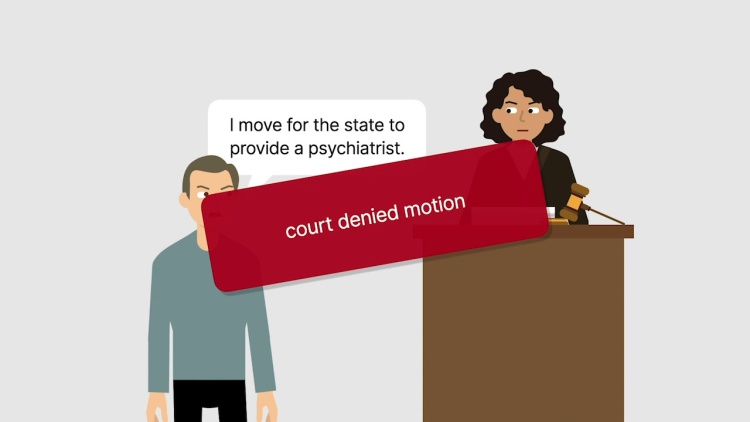Ake v. Oklahoma
United States Supreme Court
470 U.S. 68, 105 S.Ct. 1087, 84 L.Ed.2d 53 (1985)

- Written by Richard Lavigne, JD
Facts
Ake (defendant) was charged with murder and attempted murder. Because of his erratic behavior during court proceedings, the trial judge ordered a psychiatric evaluation. Based on the findings of the evaluation, Ake was committed to a psychiatric hospital. After receiving treatment and medication, Ake was deemed competent to stand trial. Ake’s attorney requested that the state provide funding for a psychiatric evaluation to assess Ake’s sanity at the time of the crime. The trial court declined to provide a state-subsidized evaluation. At trial, there was no expert witness who could testify as to Ake’s mental state during the commission of the crime. The jury was instructed that Ake bore the burden of proving that he could be found not guilty by reason of insanity. The jury found Ake guilty on all counts. At Ake’s sentencing hearing, doctors testified about his mental condition and his continuing danger to society. Ake had no expert witness to rebut the doctors’ testimony. Ake was sentenced to death. Ake appealed and argued that he should have been provided a court-appointed psychiatrist. The court of appeals affirmed Ake’s conviction and sentence. Ake petitioned the United States Supreme Court for review.
Rule of Law
Issue
Holding and Reasoning (Marshall, J.)
Concurrence (Burger, J.)
What to do next…
Here's why 904,000 law students have relied on our case briefs:
- Written by law professors and practitioners, not other law students. 47,100 briefs, keyed to 995 casebooks. Top-notch customer support.
- The right amount of information, includes the facts, issues, rule of law, holding and reasoning, and any concurrences and dissents.
- Access in your classes, works on your mobile and tablet. Massive library of related video lessons and high quality multiple-choice questions.
- Easy to use, uniform format for every case brief. Written in plain English, not in legalese. Our briefs summarize and simplify; they don’t just repeat the court’s language.





